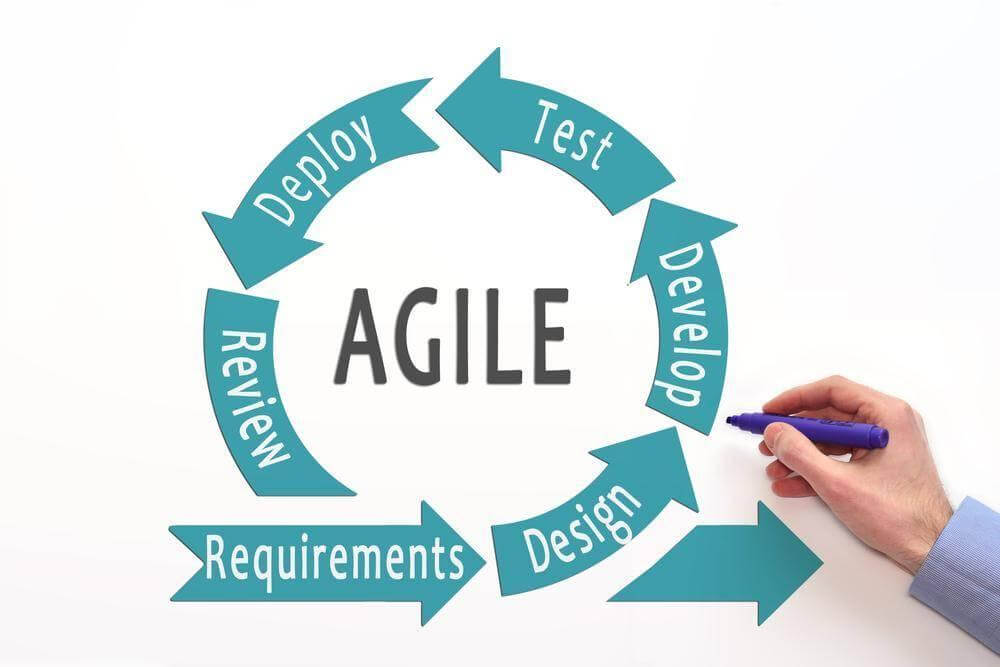Objective
The objective of this topic is to explore how the Agile methodology enhances an individual’s agility. By understanding and implementing Agile principles, practices, and frameworks, this document highlights how Agile fosters adaptability, responsiveness, and continuous improvement.
The goal is to demonstrate how adopting Agile practices enables teams and individuals to:
- Effectively manage change
- Increase collaboration
- Streamline decision-making
- Improve overall performance and flexibility in dynamic environments
This study showcases the transformative power of Agile in driving greater efficiency and faster response times in both project management and personal development.
Let’s Get Started
In both professional and personal development, asking structured “WH” questions helps in gaining clarity and understanding. Let’s apply that approach to explore the connection between Agile and agility.
1. What?
What is Agile?
Agile is a mindset and a way of thinking, based on its core principles and manifesto. It emphasizes:
- Flexibility
- Collaboration
- Customer feedback
- Over rigid planning and control.
Initially popularized in project management and software development, Agile supports iterative progress and continuous value delivery.
What is Agility?
Agility in individuals refers to the ability to adapt and respond to change effectively and efficiently. It means adjusting quickly to:
- Market conditions
- Customer needs
- Emerging technologies
Agility involves:
- Flexible processes
- Quick decision-making
- Embracing change and innovation
Key Principles of Agile
- Iterative Process – Work delivered in small, manageable cycles
- Collaboration – Strong communication across teams
- Flexibility & Adaptability – Open to change
- Customer Feedback – Frequent input from stakeholders
- Continuous Improvement – Learn and evolve continuously
2. Why Agile?
Every project brings daily challenges: scope changes, last-minute deliveries, unexpected blockers. Agile helps in mitigating these through:
- Faster Delivery – Short iterations mean quicker output and release cycles
- Improved Quality – Continuous testing, feedback, and refinements
- Customer-Centric Approach – Ongoing engagement ensures relevance
- Greater Flexibility – Agile teams quickly adapt to shifting priorities
3. When & Where to Apply Agile?
The answer is simple — Now and Everywhere.
Agile isn’t limited to a specific moment or industry. Whenever you experience challenges in:
- Project delivery
- Communication gaps
- Changing requirements
you can incorporate the Agile principles. Agile is valuable in both reactive and proactive problem-solving.
4. How to Implement Agile?
Applying Agile principles can be a game-changer for both individuals and teams. Here are practical steps that have shown proven results:
- Divide & Do – Break down large features into smaller, manageable tasks. Each task should result in a complete, functional piece of work.
- Deliver Incrementally – Ensure that by the end of each iteration, you deliver a working product or feature.
- Foster Communication – Encourage frequent collaboration within the team. Regular interactions build trust and increase transparency.
- Embrace Change – Be open to changing requirements. Agile values responsiveness to feedback, enabling better decision-making.
- Engage with Customers – Establish feedback loops with stakeholders to stay aligned with customer needs.
Agile Beyond Software
While Agile originated in software development, its principles can be applied across a range of industries:
- Marketing – Running campaigns with short feedback cycles
- Human Resources – Managing performance and recruitment adaptively
- Operations – Streamlining processes and boosting team responsiveness
Agile is more than a methodology; it’s a culture of continuous improvement that extends across all areas of work and life.
Conclusion
Adopting Agile is not just about following a process; it’s about embracing a mindset. When effectively implemented, Agile can significantly elevate an individual’s and team’s ability to:
- Respond to change
- Improve performance
- Enhance collaboration
Whether in software, marketing, HR, or personal development, Agile has the power to transform how we work and grow.
Source: Read MoreÂ

